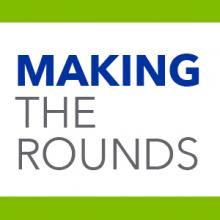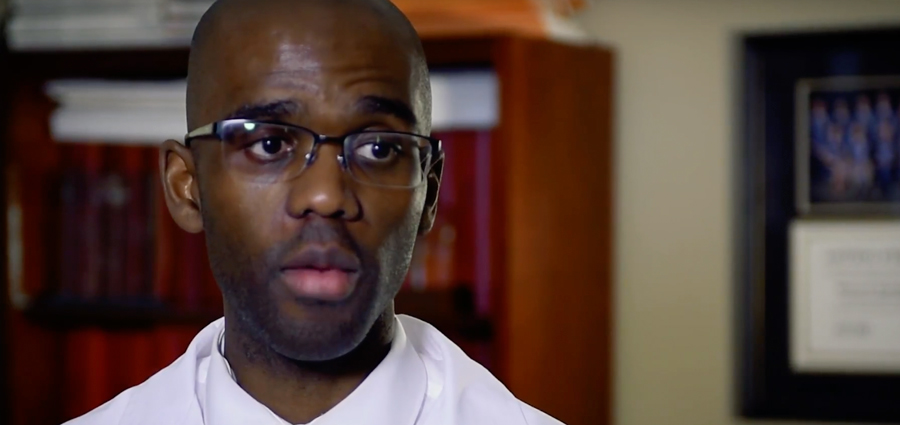
We caught up with Dr. Mark Bernard, a radiation oncologist at the UK Markey Cancer Center, for our latest Making the Rounds conversation. Dr. Bernard specializes in treating patients with gynecologic, gastrointestinal or breast cancers. His interests also include brachytherapy, a type of radiation treatment that allows doctors to deliver high doses of radiation to very specific parts of the body.
When did you know you wanted to be a doctor?
My parents were pharmacists so I had an early exposure to medicine. That early exposure fostered an interest in pursuing medicine, and as I grew older, I was able to shadow a physician and I was able to work in a pharmacy. I eventually chose to become a physician at a young age based upon those early experiences.
When I graduated undergrad, I got involved in cancer research at the National Institutes of Health, so that helped develop a preliminary interest in exploring the field of cancer. When I went to medical school, I shadowed a radiation oncologist, and after much thought, I decided to pursue a career in radiation oncology.
What is radiation oncology?
What we do as radiation oncologists is use radiation – or X-rays – to treat cancers. Sometimes it’s to prevent the cancer from coming back, at times it’s to cure or eradicate the cancer, and at other times, it’s to alleviate pain caused by cancer.
The process starts by seeing a patient in a consultation. We speak with the patient, understand their history and develop a plan. After that, we bring the patient back for an initial CT scan, we plan out how we’re going to deliver the radiation, and then we start the patient on treatment. While a patient is on treatment, I see them at least once every five treatments and I see how they’re doing, making sure they’re not having any unusual side effects. If they are, I can write prescriptions to help alleviate the side effects they might be experiencing.
How would you describe your patient-care philosophy?
I have a philosophy where the patient always comes first. I enjoy getting to know each patient as a person. When they come to me, I want to see them as a mother, as a father, as a brother, as opposed to just seeing them as a diagnosis. My patients have received a life-changing diagnosis, and I want to make sure that everything is being done to eradicate their cancer, to prevent it from coming back or to alleviate their pain. I make sure I take my time to deliver the best care that I can.
What’s the most rewarding part of your job?
The most rewarding part is seeing a patient after they’ve been treated, and they’re doing well. They’re living their life as expected and the diagnosis of cancer no longer troubles them.
When I see them years out and there’s no evidence that the cancer has come back, having those conversations is great.
Watch our video interview with Dr. Bernard, where he tells us why UK HealthCare is on the leading-edge of treatment and what that means for patients.
(2:35)








